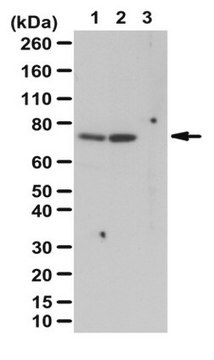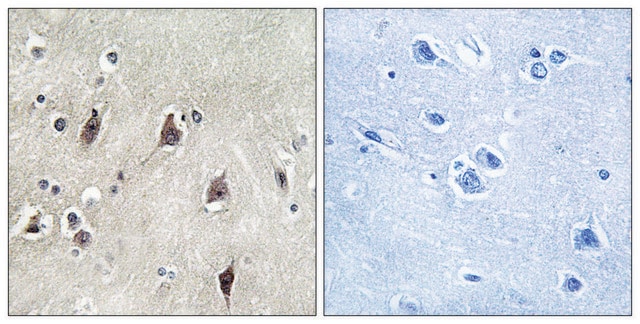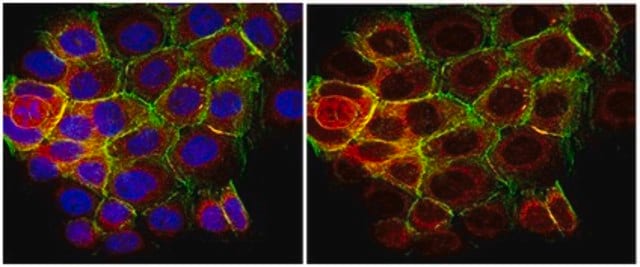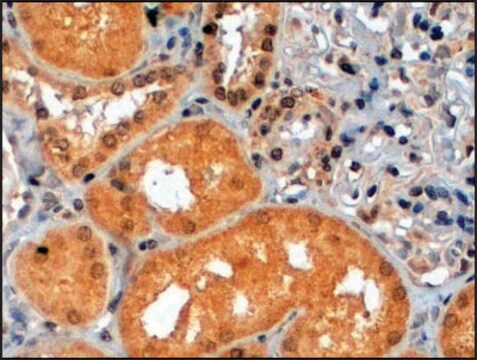S4047
Anti-S6 Kinase antibody produced in rabbit
whole antiserum
Synonyme(s) :
Anti-p70S6k
About This Item
Produits recommandés
Source biologique
rabbit
Niveau de qualité
Conjugué
unconjugated
Forme d'anticorps
whole antiserum
Type de produit anticorps
primary antibodies
Clone
polyclonal
Poids mol.
antigen 70 kDa
Contient
15 mM sodium azide
Espèces réactives
rat, mouse, human
Technique(s)
microarray: suitable
western blot: 1:10,000 using mouse NIH 3T3 fibroblast cell extract
Numéro d'accès UniProt
Conditions d'expédition
dry ice
Température de stockage
−20°C
Modification post-traductionnelle de la cible
unmodified
Informations sur le gène
human ... RPS6KB1(6198)
mouse ... Rps6kb1(72508)
rat ... Rps6kb1(83840)
Description générale
Anti-S6 Kinase reacts specifically with S6 kinase (70 kDa) in human, rat and mouse.
Spécificité
Immunogène
Application
Clause de non-responsabilité
Vous ne trouvez pas le bon produit ?
Essayez notre Outil de sélection de produits.
Code de la classe de stockage
10 - Combustible liquids
Faites votre choix parmi les versions les plus récentes :
Certificats d'analyse (COA)
Vous ne trouvez pas la bonne version ?
Si vous avez besoin d'une version particulière, vous pouvez rechercher un certificat spécifique par le numéro de lot.
Déjà en possession de ce produit ?
Retrouvez la documentation relative aux produits que vous avez récemment achetés dans la Bibliothèque de documents.
Notre équipe de scientifiques dispose d'une expérience dans tous les secteurs de la recherche, notamment en sciences de la vie, science des matériaux, synthèse chimique, chromatographie, analyse et dans de nombreux autres domaines..
Contacter notre Service technique







